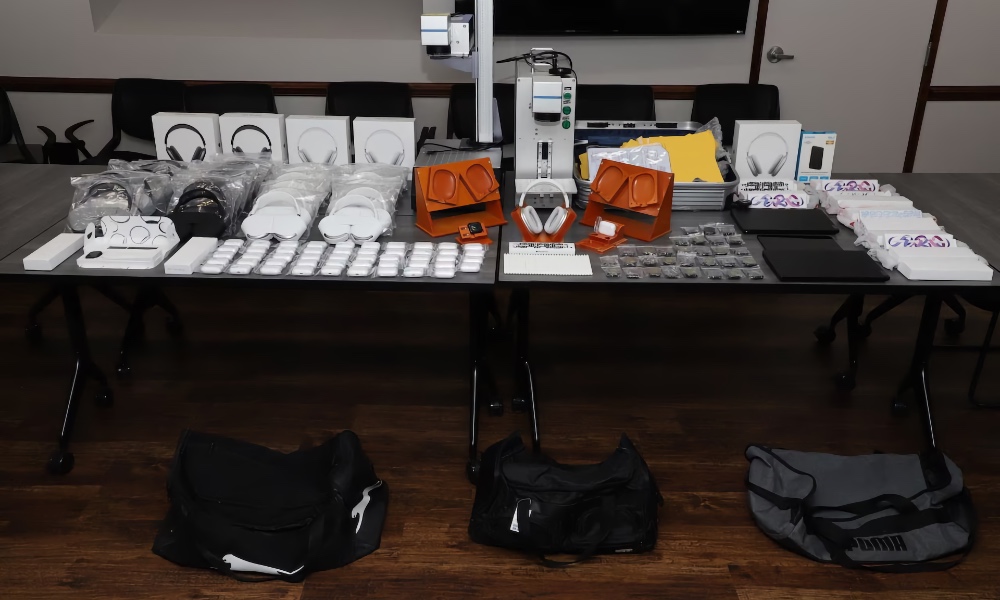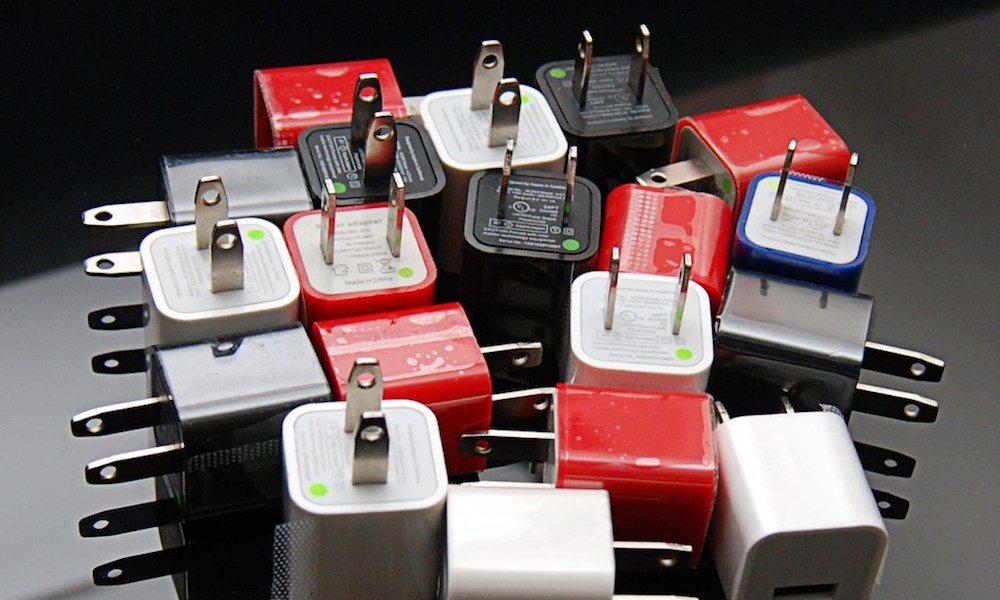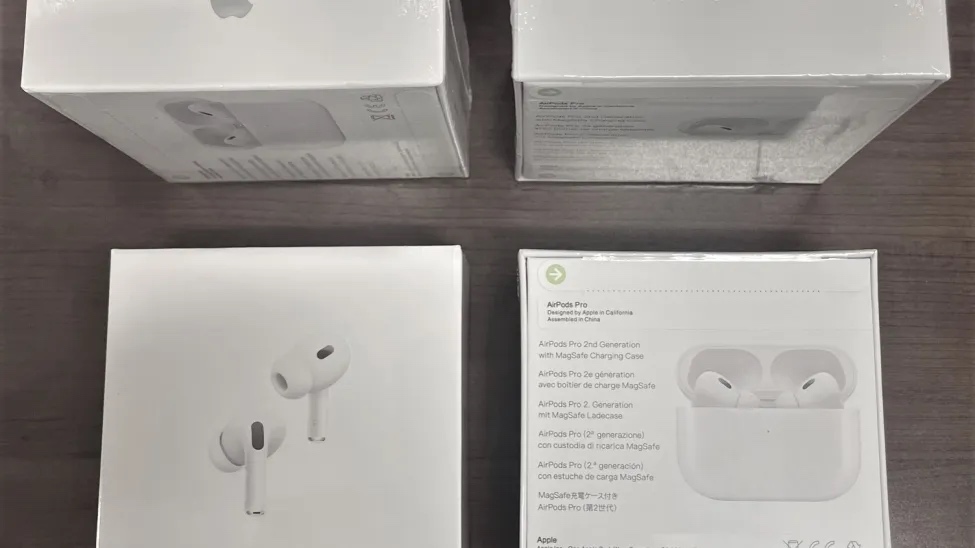NJ Electronics Shop Owner Busted for Selling Hundreds of Apple Counterfeits

Toggle Dark Mode
A New Jersey electronics store owner has been busted on criminal charges for selling hundreds of counterfeit Apple products. Authorities seized hundreds of fake AirPods Max, iPhones, and other Apple products when they arrested the man who owned the shop.
Essex County authorities have charged the New Jersey electronics store owner with selling more than 100 counterfeit Apple products. The products, which ranged from fake charging cables and adapters to AirPods and iPhones, were all packaged in imitation Apple retail packaging.
NJ.com (via AppleInsider) reports the arrest was made under Essex County’s Intellectual Property Enforcement Program, which is funded by the US Department of Justice. The 63-year-old Woodland Park man was arrested on June 5, according to Essex County Prosecutor Theodore N. Stephens II. The shop was located in the city of Orange.
The unnamed electronics store owner was charged with third-degree counterfeiting after investigators linked him to the sale of counterfeit Apple products. The defendant has yet to enter a plea, and authorities say the investigation continues.
If the store owner is convicted of the charges being brought against him, he could likely just be put on probation. While it’s true that New Jersey law says third-degree counterfeiting is a felony, with a sentence of three to five years in prison, state law also deems that first-time offenders will receive probation rather than incarceration. That means the defendant may avoid prison time if he is a first-time offender and no aggravating circumstances are found.
Law enforcement says they uncovered over 100 fake Apple devices and accessories. Although officials haven’t yet named the store (or the owner, as far as I can tell) or provided a list of the specific faux Apple products, they did provide images of the counterfeit goods.
While counterfeited electronics may not work reliably, there are also dangers in using counterfeit electronic goods. Apple’s website warns that third-party chargers and cables may cause electrical failures, overheating, or permanent device damage.
As you might imagine, Apple wants customers to only buy officially licensed “Made for iPhone/iPad” (MFi) accessories from authorized retailers. Several counterfeit electronics have been flagged by the United States Consumer Product Safety Commission (CPSC) for safety risks. Apple has in the past worked with law enforcement officials in previous cases.
The federal government provides backing for enforcement programs like the one in New Jersey via the Department of Justice’s Bureau of Justice Assistance as a part of a national program to fund local prosecution of intellectual property crimes.
While federal law enforcement agencies focus on large-scale seizures at ports and other customs checkpoints, local police focus on street-level distribution, as was allegedly conducted at this electronics store. Prosecutors say the man’s arrest was the result of a coordinated investigation, which included undercover purchases and documenting Apple’s trademarked devices and accessories.
Police have not yet announced the estimated total retail value of the fake Apple goods, and haven’t ruled out additional charges coming at a later date. Police are still investigating the counterfeit supply chains as they work to determine if the arrested individual was an independent operator or worked as part of a larger operation.
Counterfeit products from Apple and other popular electronics manufacturers are easy to find, whether it is in local stores or online. Apple warns against purchasing electronic goods that have too good to be true prices or that are not properly packaged. Apple provides information about how to identify fake goods.
Anyone who believes they may have purchased a counterfeit Apple device or accessory is advised to immediately contact local law enforcement and/or file a complaint through the National Intellectual Property Rights Coordination Center.









